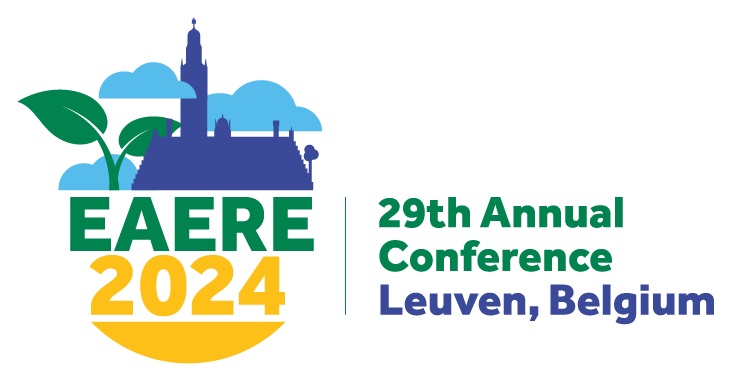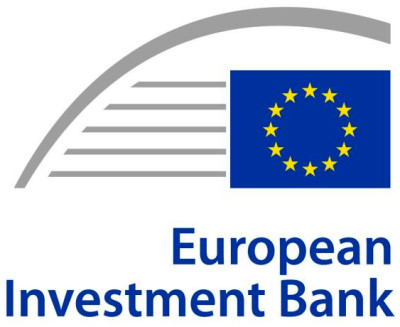|
|
Thematic Sessions
EAERE 2024 will include six thematic sessions, also streamed online.
In-person and online registered are welcome to attend.
Further details and the most updated status of thematic sessions are available in the conference full programme.
Thematic Session 1
China Carbon Market: Theory, Field Experiment, and Empirical Evidence
Time: Tuesday, 02/July/2024 - 11:00am - 12:45pm
Organizers: Jingbo Cui (Duke Kunshan University) and Junjie Zhang (Duke University and Duke Kunshan University)
Session Abstract. China's Carbon Emission Trading Scheme (ETS) has completed its first decade, marking a significant transition from regional ETS pilots to a nationwide market, albeit limited to the power sector. Several fundamental questions remain unanswered: Whether and how does carbon ETS facilitate firms’ competitiveness? How can the allowance allocation rules in the nationwide market be improved to enable carbon market participation? How can we design the nationwide market to address the incomplete information on abatement costs and local externalities of abatement? Three papers presented in this thematic session comprehensively evaluate China's carbon market through empirical evidence, lab-in-the-field experiments, and theoretical modeling and simulation. Leveraging regional pilots as a quasi-natural experiment, paper one examines the causal impacts of ETS on firms’ innovation and competitiveness. This paper unravels a critical yet unexplored channel of how early climate innovators can gain a competitive advantage. Paper two explores how alternative allowance allocation rules could facilitate carbon market participation. This paper implements a lab-in-the-field experiment for three thousand industry practitioners through the Beijing Green Exchange training courses. On top of the policy design, the last paper discusses the trade-off in policy design between market and planning under incomplete information for carbon abatement costs and the local externality of abatement.
Presentations
-
Carbon Price, Innovation, and Firm Competitiveness
by Jingbo Cui, Junjie Zhang, Yang Zheng
-
A wind tunnel test of alternative emissions trading schemes: A large-scale lab-in-the-field experiment from China
by Dongsheng Chen, Zhi Li, Da Zhang, Xiliang Zhang
-
Market vs. Planning: Emission Abatement under Incomplete Information and with Local Externalities
by Guojun He, Yuhang Pan, Yang Xie
Thematic Session 2
How does collective action affect preferences for individual and collective action?
Time: Tuesday, 02/July/2024 - 2:00pm - 3:45pm
Organizers: Michael Pahle (PIK) and Martin Kesternich (U Paderborn)
Session Abstract. This session focuses on how individual preferences and attitudes form or change depending on whether collective action is taken and how successful it is. Bartels & Kesternich analyse a potential crowding out of voluntary action in presence of collective action. Carlsson et al. look at support for climate leadership, and the role of conditionality. Pahle et al. analyse the change of preferred political level (national, regional, international) of action in light of (being informed about) the increasingly likeliness that the Paris climate goals will be failed. Overall results suggest a “weak unidirectional link” in the sense that actual collective action has very little effect of individual preferences, but to some degree affects preferences for desired collective action.
Presentations
-
Motivate the Crowd or Crowd them out? The Impact of Local Government Spending on the Voluntary Provision of a Green Public Good
by Martin Kesternich, Lara Bartels
-
The Importance of EU Coordination: Citizen Preferences for Climate Leadership and the Role of Conditional Cooperation
by Fredrik Carlsson, Mitesh Kataria, Elina Lampi, Asa Loefgren, Thomas Sterner
-
A Sobering Truth? Assessing the Impact of Revealing International Climate Cooperation Shortcomings on Policy Attitudes
by Michael Pahle, Antonia Schwarz, Axel Ockenfels, Mario Scharfbillig, Stephan Sommer
Thematic Session 3
Nudges and taxes: theory, experiments, and welfare analysis
Time: Tuesday, 02/July/2024 - 4:15pm - 6:00pm
Organizer: Stefan Ambec (Toulouse School of Economics and INRAE)
Session Abstract. The session investigates how nudges and taxes interact in reducing externalities. It encompasses three papers that complement each other in terms of methods and results. The first one, presented by Olof Johansson Stenman, analyzes theoretically pro-social nudges and their interaction with the Pigouvian tax. The second one, presented by Stefan Ambec, report results from an online shopping experiment with a nudge (a traffic-light label) and two levels of a carbon tax. The third one, presented by Gregory Sun, estimates the welfare impact of nudges and taxes with data on 300 experiments on cigarettes, vaccinations, and energy conservation.
Presentations
-
Optimal Prosocial Nudging
by Olof Johansson-Stenman, Fredrik Carlsson
-
Taxing and nudging to reduce carbon footprint : Results from an online shopping experiment
by Stefan Ambec, Henrik Andersson, Stephane Cezera, Aysegul Kanay, Ouvrard Benjamin, Panzone Luca
-
Judging Nudging: Understanding the Welfare Effects of Nudges Versus Taxes
by John List, Matthias Rodemeier, Sutanuka Roy, Gregory K Sun
Thematic Session 4
Costs of climate change in the presence of tipping points
Time: Wednesday, 03/July/2024 - 2:00pm - 3:45pm
Organizers: Simon Dietz (London School of Economics), Moritz A. Drupp (University of Hamburg), Felix Schaumann (MPI for Meteorology and University of Hamburg) and Paul Waidelich (ETH Zürich)
Session Abstract. Through shifts in temperatures, sea levels, precipitation patterns, and extreme weather events, climate change is poised to inflict severe costs on societies. Tipping points, characterized by qualitative changes to elements of the Earth system following small perturbations, can drastically alter the trajectory of climate change impacts. Since understanding their potential effects is key for prudent mitigation policy and risk management, we propose a thematic session to present new research on the social costs and financial risks of climate tipping points and their integration in integrated assessment models (IAMs). The session opens with two papers assessing how structural model variations, including the consideration of tipping points, affect the social cost of carbon (SCC) in an evidentiary synthesis that combines a meta-analysis, an expert survey and a synthetic construction of SCC estimates using machine learning (paper 1) or in a modular, meta-analytic IAM combining different structural model modifications (paper 2). As such, these papers quantify the relative importance of tipping points for climate change impacts and their interactions with other crucial modeling features. Using META, the leading IAM for assessing tipping points, the following two papers investigate how an advanced representation of tipping points alters the SCC and the social costs of methane. Paper 3, among other things, implements a new Antarctic Ice Sheet module updates META’s downscaling of temperature change to CMIP6, amongst other improvements, and estimates the economic benefits of methane action, alongside new national-level and global SC-CH4 estimates, while paper 4 adds a new impact channel to assessing the costs of Atlantic Meridional Overturning Circulation (AMOC) slowdown. Finally, paper 5 quantifies the financial risks for stock investors posed by tipping points, underscoring the necessity of integrating them into risk assessments and stress tests. Together, the papers advance our understanding of the complex interplay between environmental change and economic impacts and yield important insights for climate policy.
Presentations
-
Synthesis of evidence yields high social cost of carbon due to structural model variation and uncertainties
by Frances Moore, Moritz Drupp, James Rising, Simon Dietz, Ivan Rudik, Gernot Wagner
-
Structural modelling interactions in climate policy evaluation
by Felix Schaumann, David Anthoff, Moritz A. Drupp, Martin C. Hänsel, Frances C. Moore, Lisa Rennels, James Rising
-
Economic benefits of methane action
by Simon Dietz, James Rising, Drew Shindell, Thomas Stoerk
-
Flipping the cost of tipping? Economic impacts of reduced AMOC carbon drawdown
by Felix Schaumann, Eduardo Alastrué de Asenjo
-
The risks of climate tipping points for financial investors
by Paul Waidelich, Lena Klaaßen, Stefano Battiston, Bjarne Steffen
Thematic Session 5
Pesticides and the Environment
Time: Wednesday, 03/July/2024 - 4:15pm - 6:00pm
Organizers: Anouch Missirian (TSE) and Frederik Noack (UBC)
Session Abstract. Pesticide use in agriculture leads to environmental pollution and major health concerns. Two recent trends in farming have brought pesticides front and center: genetically modified (GM), herbicide-tolerant crops, and increased homogenization of agricultural landscapes. Here we present new insights on the impact of GM crop adoption on pesticide use and spillovers across farms and countries. The adoption of herbicide-tolerant GM crops has led to large increases in herbicide use – specifically the herbicide they are designed to tolerate. The paper by Ed Rubin and Emmett Saulnier focuses on the health effects of the increase in the use of herbicides (glyphosate). The paper by Anouch Missirian shows that the herbicide (dicamba) externalities from dicamba-tolerant GM adoption force the adoption of that new technology in neighboring fields. The paper by Jean-Sauveur Ay, Estelle Gozlan, and Emmanuel Paroissien looks at the pesticide interactions across farms through pest stocks. The final paper by Vasundhara Gaur, Frederik Noack, and Eduardo Souza-Rodrigues analyzes pesticide and spillovers across countries through general equilibrium effects.
Presentations
-
Perinatal Health Effects of Herbicides: Glyphosate, Roundup, and the Roll-out of GM Crops
by Edward Rubin, Emmett Saulnier
-
Yes, in your backyard: Forced technological adoption and spatial externalities
by Anouch Missirian
-
The Effects of Noncompliance with Mandatory Pest Control: Causal Evidence from French Vineyards
by Jean-Sauveur Ay, Estelle Gozlan, Emmanuel Paroissien
-
Technology Adoption in General Equilibrium
by Vasundhara Gaur, Frederik Noack, Eduardo Souza-Rodrigues
Thematic Session 6
Welfare criteria for environmental issues
Time: Thursday, 04/July/2024 - 11:00am - 12:45pm
Organizers: Frikk Nesje (University of Copenhagen) and Paolo Piacquadio (University of St. Gallen)
Session Abstract. The overarching theme of the papers presented in this session is social values in environmental and resource economics. Any analysis of environmental issues and policies requires a careful consideration of both facts and underlying social values. Over the past couple of decades, economists have largely focused on uncovering factual insights through excellent econometric, experimental, and quantitative research. However, this shift in the field often resulted in value judgments becoming implicit. The session aims to broaden the focus on social values and their applications in resource and environmental economics. The selected papers collectively contribute to this theme by exploring various dimensions, including the impact of disagreement on climate sensitivity on climate targets, the quantity-quality tradeoff in population ethics, the role of welfare weights in shaping environmental regulations, and the attitudes towards discounting and inequalities in theories of intergenerational justice.
Presentations
-
Disagreement Aversion
by Antoine Bommier, Adrien Fabre, Arnaud Goussebaile, Daniel Heyen
-
Intergenerational Population Ethics
by Paolo G. Piacquadio
-
Welfare-Maximizing Climate Policy and the Role of Climate Finance
by Simon Lang
-
Intergenerational Discounting and Inequality
by Frikk Nesje, Paolo Piacquadio
Last update on June 11, 2024 |



